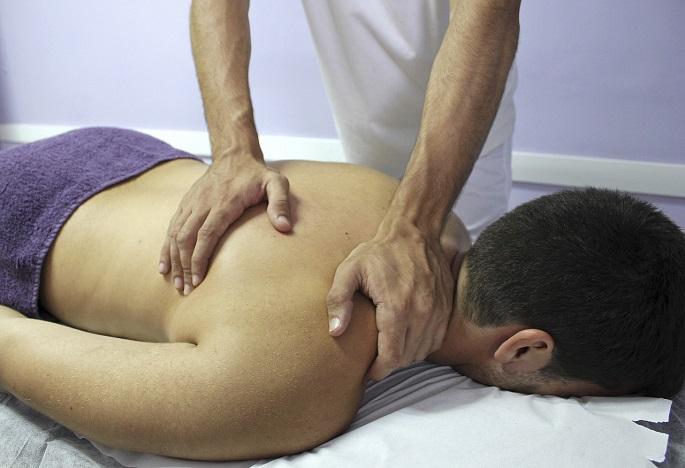Employers and Universities: Work with us?

60 Second Interview: Osteopath
Andrew joined the Royal Navy when he left school, but then decided he wanted to retrain to pursue an osteopath career. He explains why communication and listening skills are crucial.
Name: Andrew MacMillan

Company: London School of Osteopathy
Industry: Healthcare
Job role: Osteopath and lecturer
Education
University: London School of Osteopathy, Cardiff University
Degree subject: Master's in Osteopathy, post graduate certificate in medical education
Apprenticeship in weapons engineering in HM forces.
1. What was your very first job?
When I left school I joined the armed forces as a weapons engineer in the Royal Navy. This taught me an awful lot about discipline and work ethic, as well as teamwork skills and communication. It’s very important to be able to work under pressure and in highly dynamic environments.
2. What did you want to do when you were at school?
I honestly had no idea and very little direction in life. I was far more interested in sports than studying and was not ready for further education at that time.
3. How did you find out about the industry?
I have had back pain since my early teens and had experienced osteopathy [an alternative medicine that relies on manipulating muscles] as a patient. That sparked my interest in an osteopath career.
Learn more: skills you need for a career in care
4. How did you get to where you are today?
Hard work and determination! I went back to university as a mature student. Since I didn’t really apply myself at school, it took a lot of hard work and effort to develop the skills required to study and gain qualifications as an adult with a job. I would have been much better off applying myself from a younger age.
5. What is a typical day like?
I run my own successful clinic. I can pick my hours and choose how many patients I see and what area of work I want to specialise in. My day consists of examining and treating patients with a range of muscle or joint pains. I offer hands-on treatments as well as advice. I spend a fair amount of my time writing notes and letters, but most of my time is spent with patients.
I also teach sports rehab at a university, so I get to talk about and demonstrate exercises for a living, which is great. I work with a mix of professional athletes and the general public. I love teaching and helping students develop and reach their potential. Some are on their second degree, some come straight from school or work, and all have different academic backgrounds. Teaching is a very rewarding experience and it keeps me at the top of my game.
6. What’s the best thing about your job?
Helping people, my job is incredibly rewarding and positively impacts peoples lives.
7. What is the most challenging thing about your job?
Sometimes you get patients in a lot of pain or people you are not able to help. This can be incredibly challenging emotionally and requires good communication skills. Some patients are referred on to other professionals such as doctors or surgeons or for testing like scans, it is important to always put the patient first and realise they can be very worried about what is happening. Taking the time to include them in decisions and explain things is valuable and will be appreciated.
8. What advice do you have for people who want to do what you do?
Study a science-based subject and work hard. This job is more about people and personal characteristics than it is about academic qualifications, although you need good marks to be an osteopath. Everyone is capable of achieving it with the correct guidance and motivation. Never give up and do something you enjoy!
9. What’s the number-one most important transferable skill needed for your job?
Communication and listening skills are very important, as the majority of my role is dealing with people who are often in pain and worried. Empathy and communication are essential.
10. How did you develop your confidence at work?
I studied a lot and also observed senior staff. I also asked for feedback and was open to listening. It can be hard at first but as you gain experience your confidence will grow.
11. What do you wish you’d known before starting your career?
That it’s okay to change your mind. I have had several jobs and roles and you don’t have to be in the same position for ever. It’s okay to fail and to take risks life will work itself out.
12. Where would you like to be in 5 years?
I am currently completing further training in paediatrics (looking after children) and plan on completing a PhD at some point. I'll probably change my mind a few more times between now and then.
Main image via Pixabay
